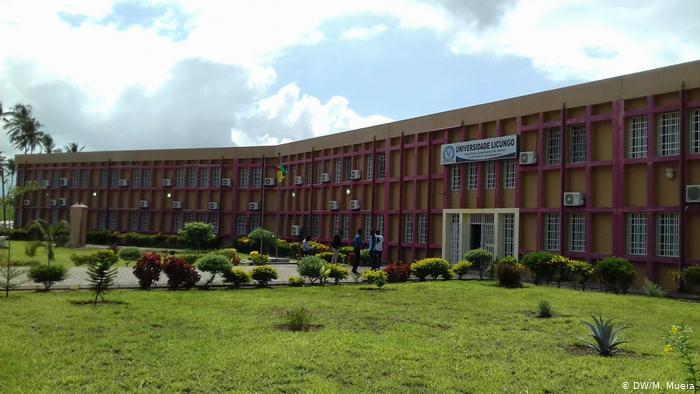Adapting to climate change, opportunities for young people and cultural exchange: German ...
Covid-19: Poor Internet is an obstacle to distance learning in Mozambique

At Licungo University, there are no videoconferencing facilities, and students are receiving assignments via email or social media. [Photo: DW]
The internet is one way of implementing the social isolation decreed by the government, and many university students are now taking classes online. But poor Internet quality and high connection prices are major issues.
One of the institutions that is turning to online teaching is the Eduardo Mondlane University in Maputo. In theory, students do not even need to leave home to access the lessons – one way of complying with the rule of social isolation and avoiding backlogs in lesson plans.
But some students complain about weak Internet signal and of prices which make videoconferencing every day expensive.
“It’s complicated for us,” says a student on the electronic engineering course at Eduardo Mondlane University who asked not to be identified.
“The financial costs are falling on us. Every class costs about 20 meticais (about 0.30 euros) for the Internet, and we have classes every day. How much is 20 times 5? Counting that, per day, there are three classes, this is very expensive,” says the student.
Lower monthly fees to offset expenses
Lowering tuition fees would help offset expenses, the student says. “We pay tuition and still have to pay for airtime. They give us [group] assignments, but one is in Maputo, another is in Nampula, Zambézia or Tete … How will group work like this be done?” he asks.
The scenario is little different at Licungo University, in Quelimane. There are no videoconferences, and students receive assignments by email or social media.
But it’s not the same, says Baloi Júnior, a sociology student. “I do not agree with this issue of giving the text and each one reading and sending notes [folhas de leitura] individually to the teacher. There should be an interaction between the teacher and the student,” he insists.
The student also complains about group work, which in his view does not make sense. “Are we, in view of the scale of the disease, prepared to do group work? The head of state said not to group up or leave the house. But teachers keep on giving group assignments and we have to go to the homes of colleagues who sometimes live very far away. We should cancel group work and opt for individual work,” he argues.

Slow internet and high costs
Doing these jobs over the Internet is also complicated, again with issues of poor connectivity and high costs.
“As a preventative measure, it is important, but from the point of view of continuing teaching by alternative means, it will be difficult for Mozambican universities,” says Professor Ricardo Raboco, who says that Mozambique’s universities are not technologically equipped for the introduction of virtual classes.
This is a consequence of, first of all, the quality of the Internet, “which is not the best”, he explains. In addition, he says, “there are very few public universities in Mozambique with the Internet access to make possible the entire process of teaching and learning. It will not be as a result of Covid-19 that information technologies will become a structuring element in this way.”













Leave a Reply
Be the First to Comment!
You must be logged in to post a comment.
You must be logged in to post a comment.